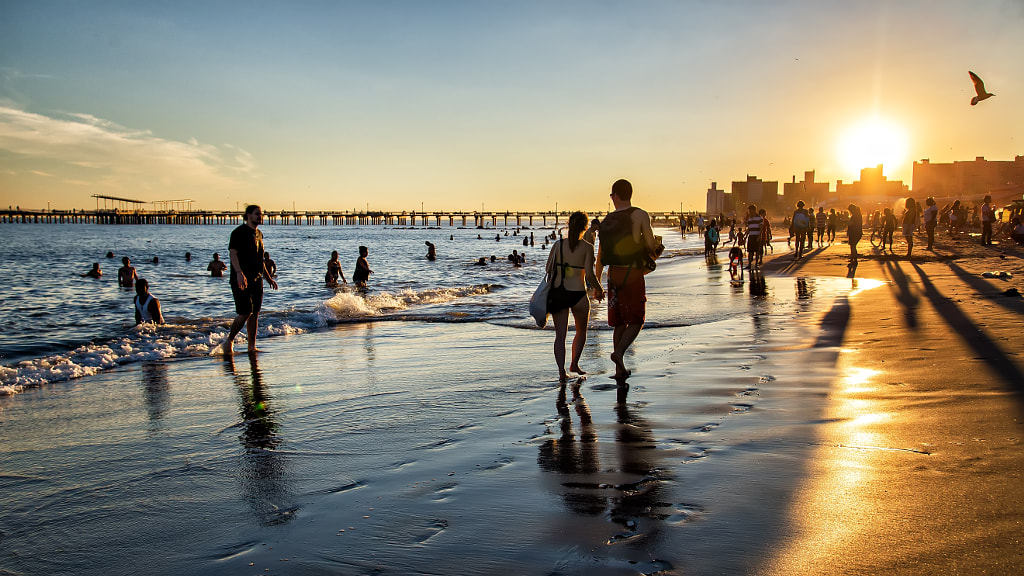

New York City is no stranger to the devastating impacts of extreme weather events. Hurricane Sandy in 2012 was a stark reminder of the city's vulnerability to rising sea levels and coastal storms, which are only expected to become more frequent and intense in the coming years. In response to these threats, city officials have proposed a controversial solution: the construction of a multi-billion dollar sea wall along the beaches of New York.
The sea wall, officially known as the New York/New Jersey Harbor and Tributaries Focus Area Feasibility Study, would be a 6-mile long barrier running along the coast of Staten Island, designed to protect the city from storm surges and rising sea levels. The project costs an estimated $52 billion, making it one of the most expensive infrastructure projects in US history.
Supporters of the sea wall argue that it is necessary to protect the city from the devastating impacts of extreme weather events, which are only expected to become more frequent and intense due to climate change. They point to the damage caused by Hurricane Sandy, which caused $19 billion in damages and claimed the lives of more than 40 people in New York City alone.
Opponents of the sea wall, however, argue that it is not a sustainable solution to the city's climate change challenges. They point out that the wall would only protect a small portion of the city's coastline, and that it could actually make other areas more vulnerable to storm surges by redirecting water to different parts of the city. They also argue that the project is an expensive and shortsighted solution that fails to address the root causes of climate change.
One of the most controversial aspects of the sea wall project is its potential impact on the environment. Critics argue that the construction of a massive wall along the coast could disrupt natural habitats and damage marine ecosystems, potentially harming fish populations and other wildlife. They also point out that the sea wall could exacerbate the effects of sea level rise by preventing natural coastal processes from occurring, such as the movement of sand and sediment along the beach.
Despite these concerns, the city has pushed ahead with plans for the sea wall, with construction expected to begin in the coming years. The project has already faced criticism from some environmental groups, who argue that it is not a sustainable solution to the city's climate change challenges. However, with rising sea levels and the increasing frequency of extreme weather events, it is clear that New York City needs to take action to protect its residents from the impacts of climate change, even if that means embarking on controversial and expensive infrastructure projects like the sea wall.